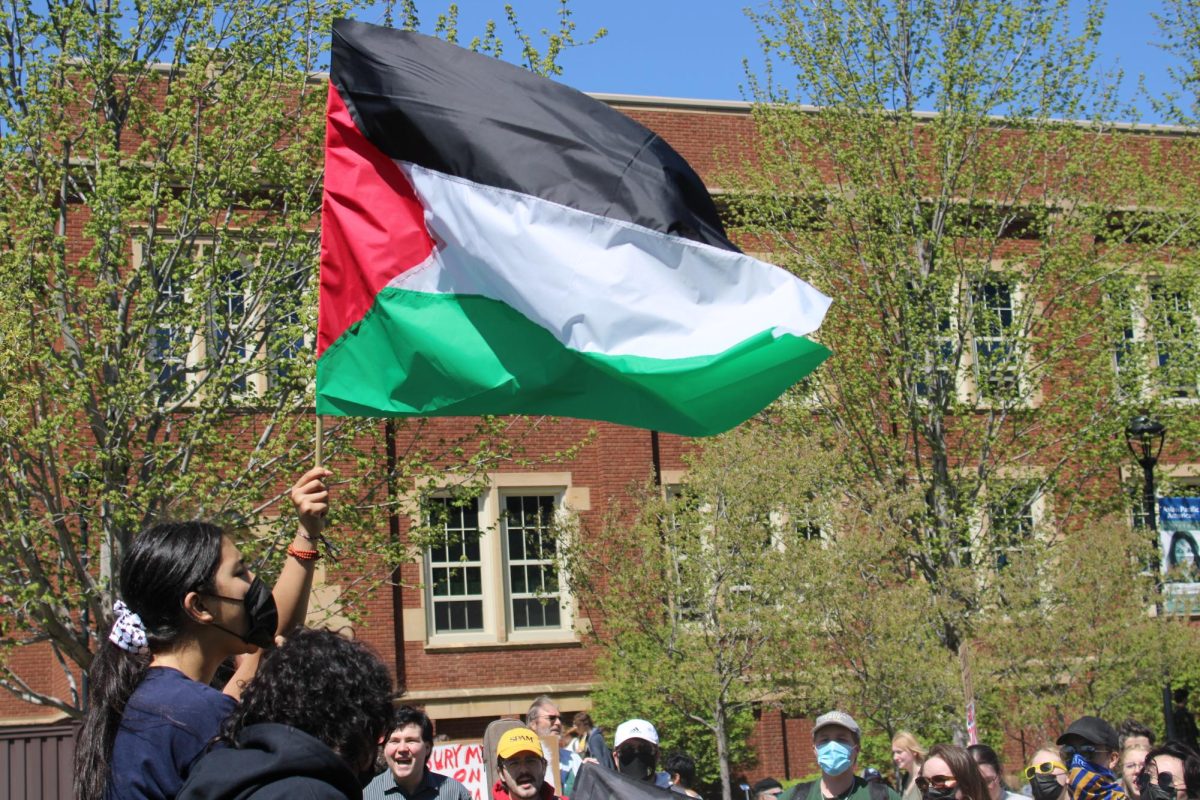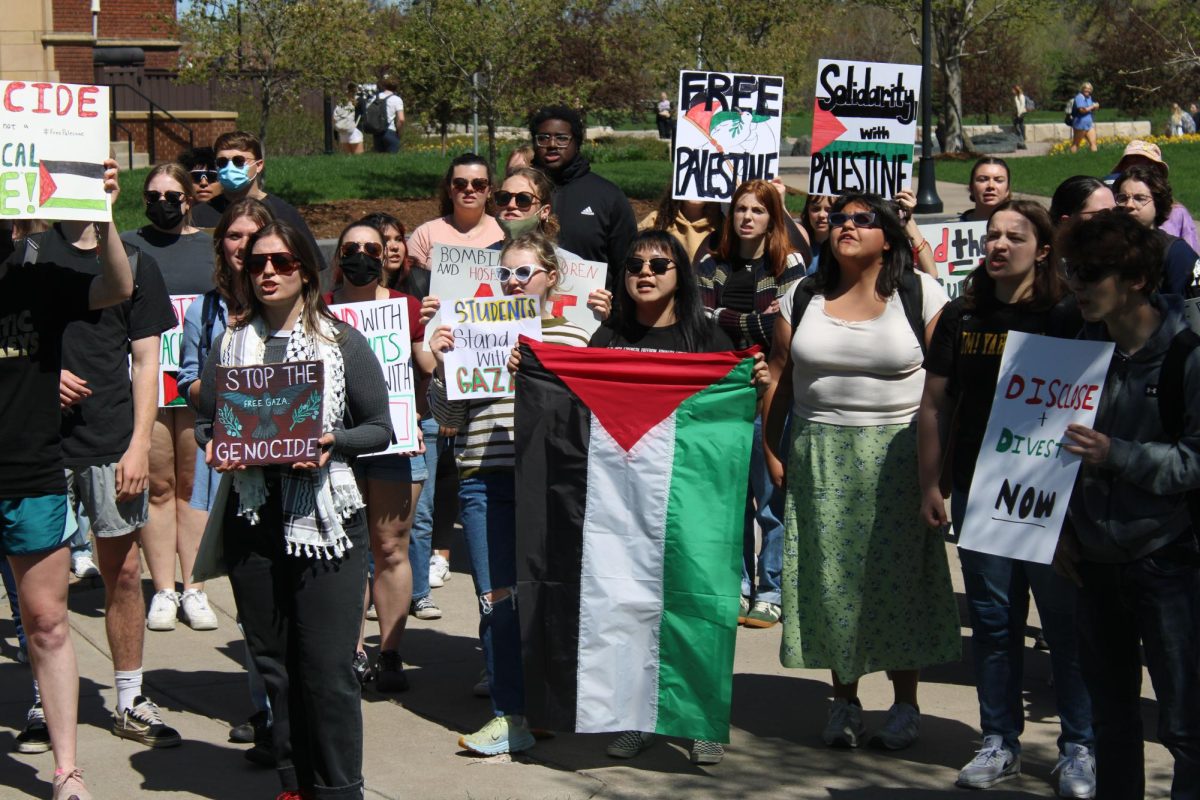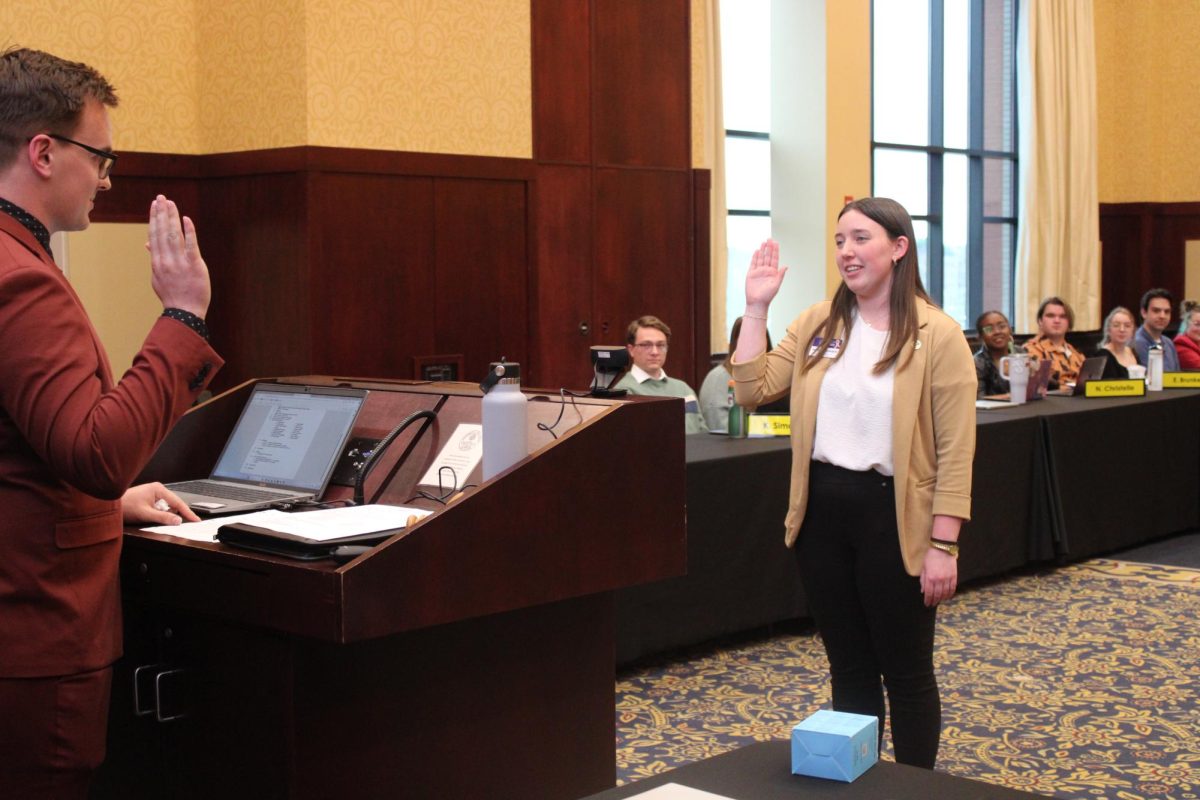Within five days of her engagement, 22-year-old Tabitha Popma’s priorities went from being a senior accounting student at UW-Eau Claire to being an Army spouse.
Now, she said, her life revolves around the 8 or 9 p.m. phone call that might come from her husband, Culley Popma, an Eau Claire senior and sergeant in the Army National Guard. The couple married days before he was mobilized and sent to Wisconsin’s Fort McCoy in March.
| “I dropped him off … and thought I’d never see him again.” –Tabitha Popma Senior, about her husband, Culley |
“I dropped him off Wednesday at noon and thought that I’d never see him again,” Tabitha said. The couple is now on their fifth or sixth “goodbye,” because Culley has not been deployed yet and sometimes gets a weekend pass to go home.
Tabitha said many people thought the reason she and Culley married before his mobilization was the increased benefits that accompany it, such as a higher salary for Culley when deployed and health care for her. The benefits don’t matter, she said, especially because she had no idea what they were and the pay increase was not that much. What mattered to Tabitha was Culley’s plea when they discussed what to do.
“The deciding factor was he looked at me and said, ‘I’m going to be gone for up to a year and I would love to leave you as my wife,’ ” she said. “I don’t know if I even had a choice.”
When the couple first met and Tabitha discovered Culley was in the military, she tried to walk away. She said she didn’t want to put herself in the position to be hurt.
Two years later, she is surrounded by the military. She has several pieces of clothing adorned with the Army’s logo and can describe some of the intricacies of how the military units are divided. Culley is in the 724th Engineering Battalion in the A Company. Also, most of her support now comes from other military spouses.
“If anybody even tries to sympathize with me, they can’t,” she said. “Unless you have a husband that’s gone, chances are good you really don’t understand.”
That is also true for Yvette Edwards, a former Eau Claire student who volunteers in her free time with Family Support for the Army National Guard. She does it as a way to support herself while her husband, non-traditional senior Chris Edwards, is away.
Yvette calls families when new information is released regarding their family members.
“I feel I am a support to them and, in talking to them, I am supported by them,” she said.
Yvette, 33, and Chris, 37, met at a non-traditional student orientation at the university. As they kept bumping into each other on campus, their relationship developed more, she said.
Six months after their meeting, Yvette’s father died and it was too difficult for her to return to school. She never would have made it through the grieving process without Chris, she said. The two grew closer and began planning their wedding.
They married last October with the possibility of Chris’s call to duty on their minds. Chris is a platoon sergeant in the 724th Engineering Battalion, A Company in the 3rd Platoon.
Chris was mobilized in March and remains at Fort McCoy. Yvette said they are anticipating his deployment orders will come this month, and he may be gone for at least a year.
Although their separation came early in their marriage, Yvette said it has, in some ways, been helpful in her transition to becoming a wife.
“The adjustment of being a newlywed is in itself a task,” she said. The couple must learn to live together and deal with the other’s habits and annoyances, she said.
The adjustment into a military lifestyle has been a struggle, though. Yvette said it is a very different lifestyle, and she is struggling with the idea that Chris cannot tell her everything he is doing.
The struggle for Chris, Yvette said, is coming with the change of his responsibilities.
“It is a lot more stressful for those guys who have been called,” she said, “because they have always been weekend warriors.”
Chris was preparing to graduate this month, but now it may be delayed until December 2004.
“I think Chris was torn when he got called,” she said. “He is a very dedicated student, but he is also a very dedicated man to his duty.”
Yvette and Tabitha said they receive a letter nearly every day and an occasional phone call from their husbands. That rare communication, however, does not compensate for the men not being there and the worry these women have of their husbands not returning.
“(Culley) has been Most Valuable Soldier for the past two years,” Tabitha said. “I know he knows what he is doing, but you can’t control everything.”






